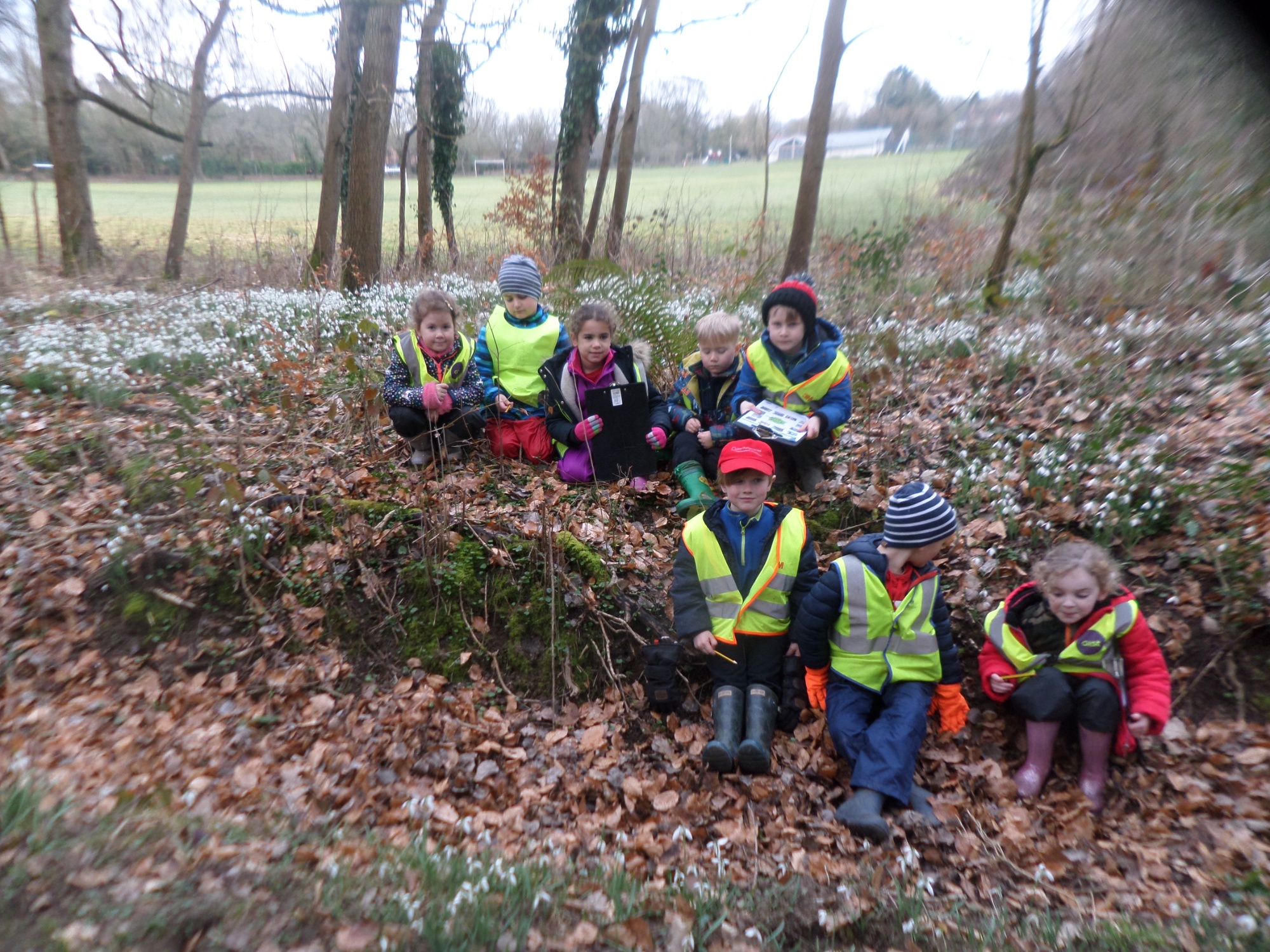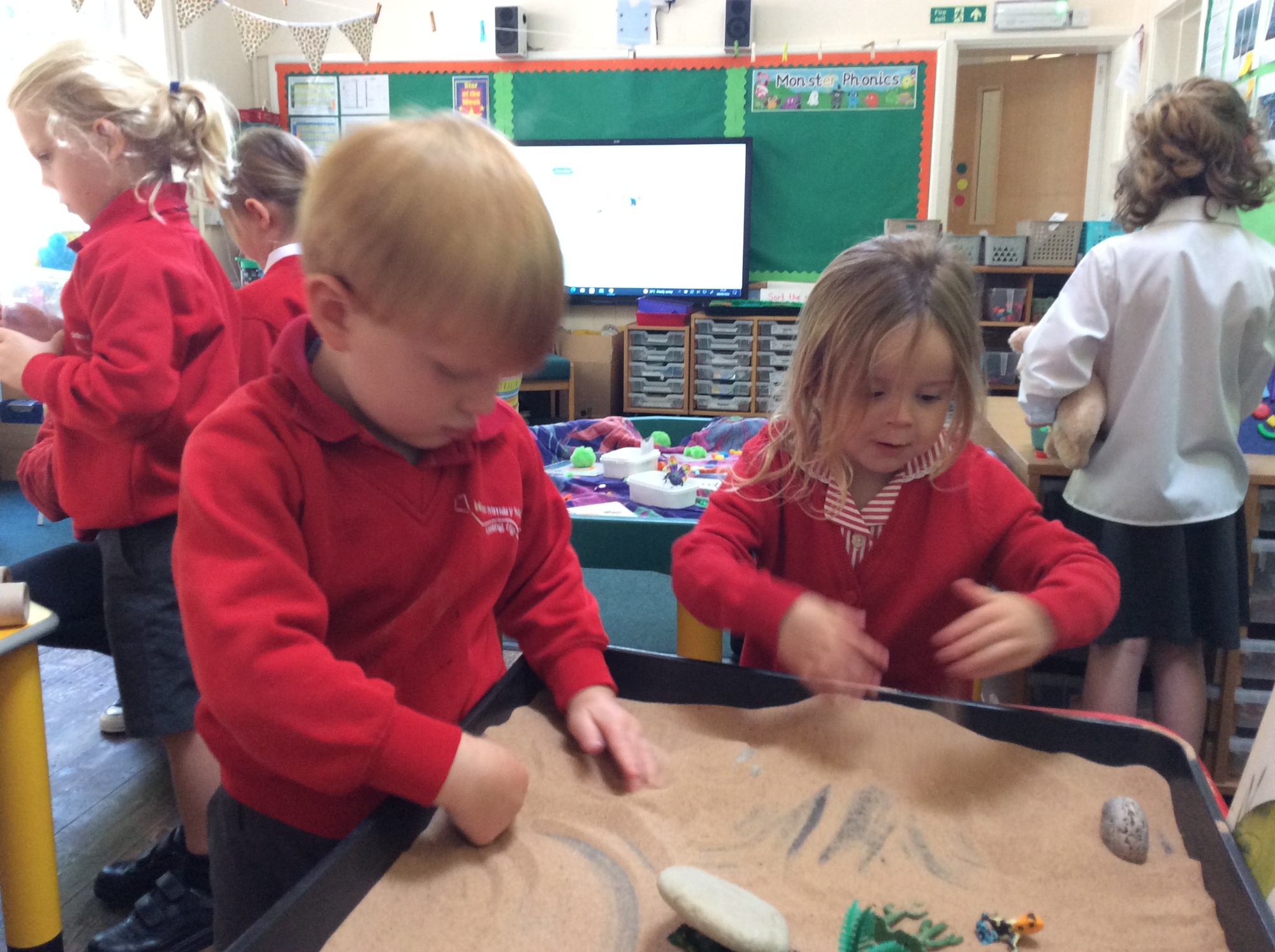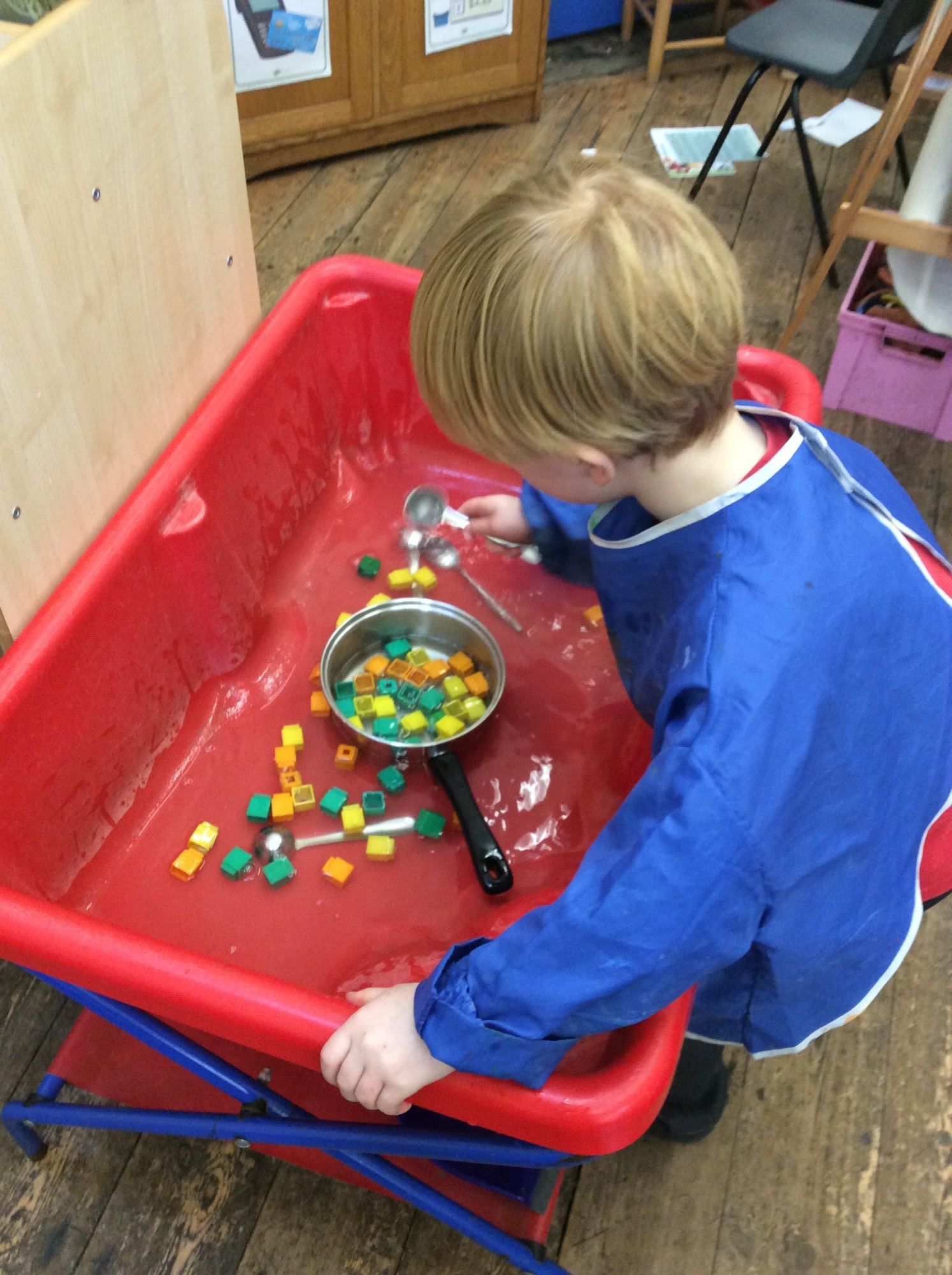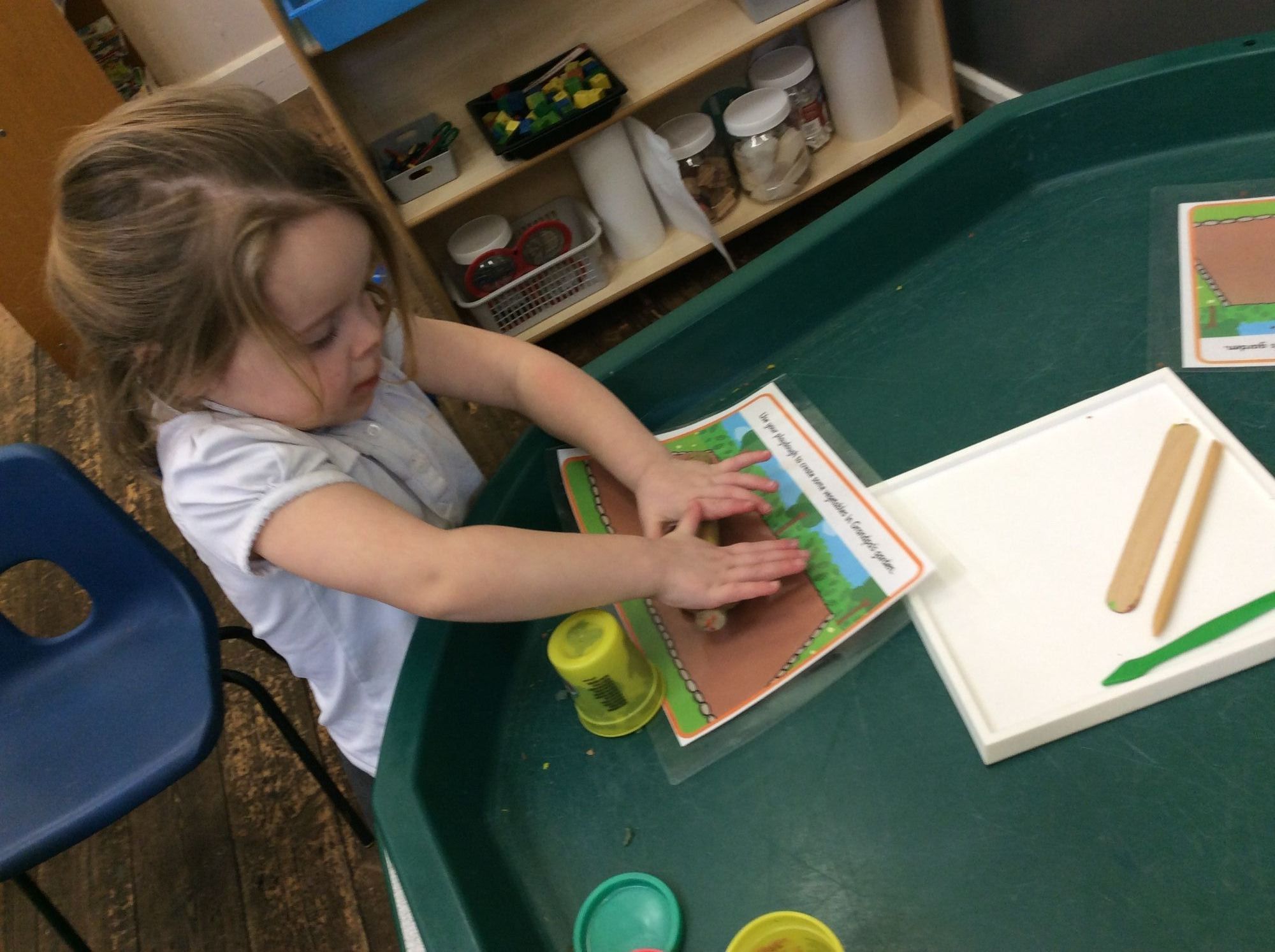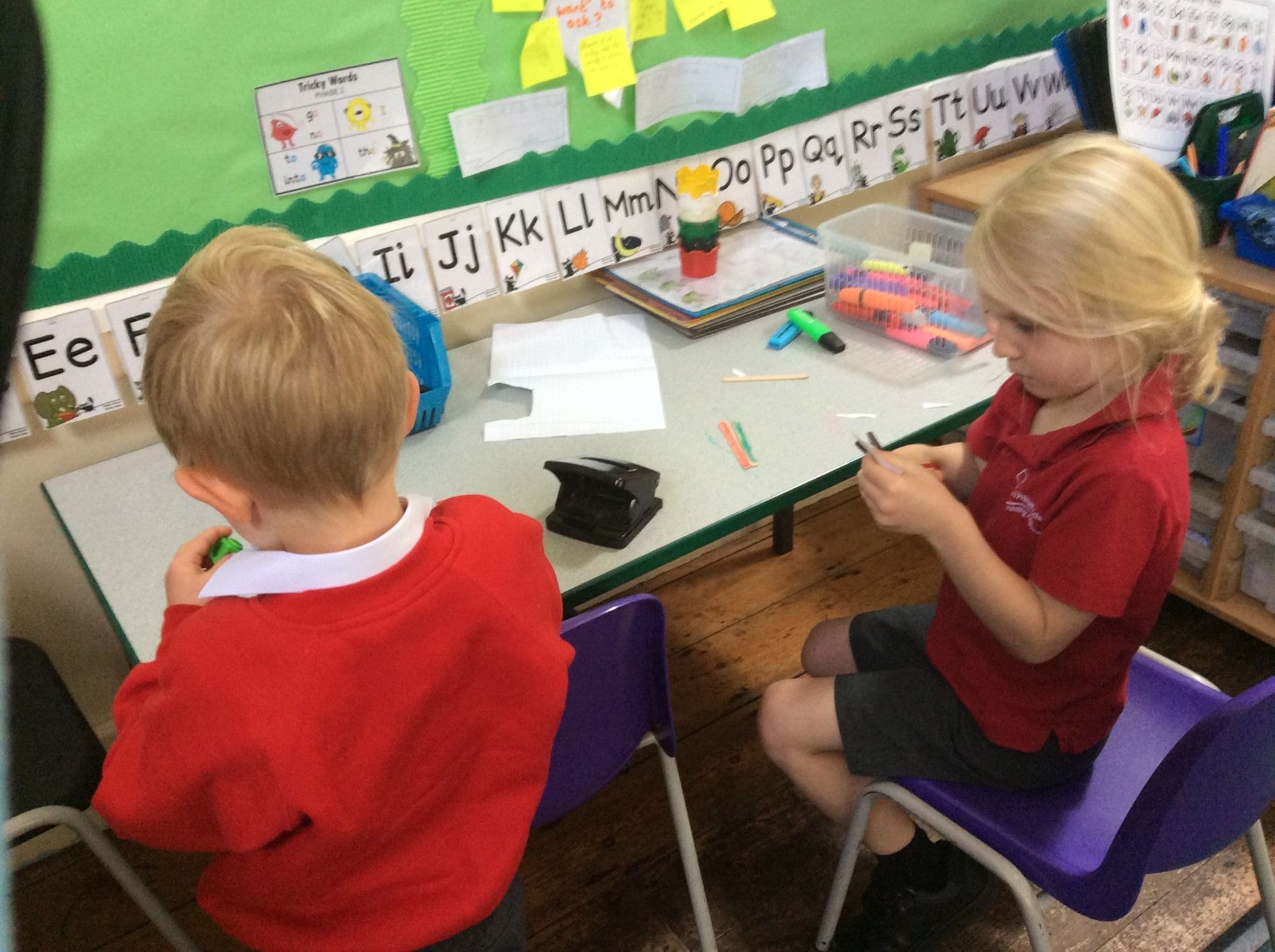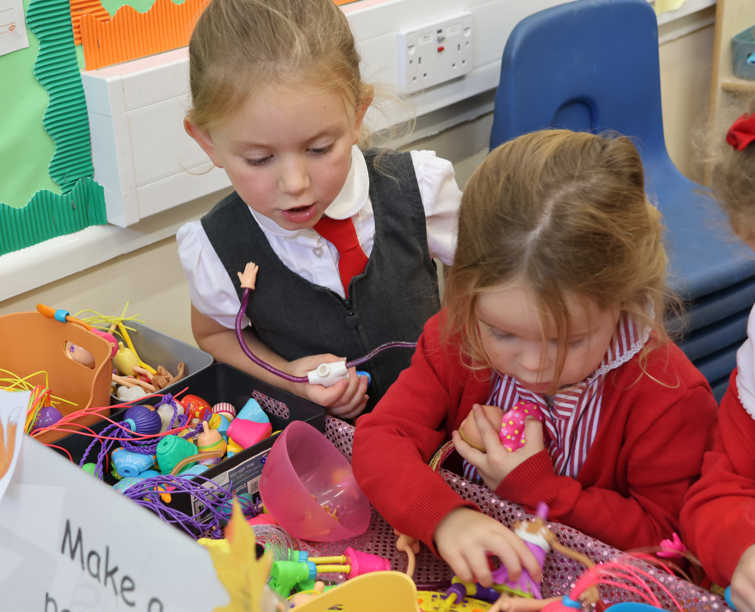Foundation Stage 2 (Muntjac Class)
EYFS
Welcome to the Early Years Foundation Stage at Inkpen Primary School where ‘Play is the work of children’.
Young children learn through seeing, hearing and doing. They are curious, exploring and testing their ideas, solving problems and trying to make sense of the world.
In Reception, we continue working within the same framework as your child’s pre-school setting. This curriculum has seven areas of learning which are all interlinked during our school week and are taught primarily through play-based activities, both indoors and in our Outdoor Classroom.
At Inkpen School, children will continue to develop the 3 prime areas which are: Communication and language; Physical development; Personal, Social and emotional development.
The prime areas will help them to further develop skills in the 4 specific areas which are Literacy, Mathematics; Understanding the world; Expressive arts and design.
In addition, the children in Reception benefit from a weekly Forest School session led by our own trained forest school leaders in the local surrounding woodland, adjacent to the school.
Reception take part in our PE programme which is provided by a qualified sports coach developing not only their physical skills but also spatial-awareness, listening and team-building skills. Reception children at Inkpen School are happy, confident and independent learners who are ready for Key Stage One at the end of the year.
At Inkpen Primary School, we really know our children and respect them as unique individuals, recognising that they will all develop in individual ways and at varying rates. We have the luxury of working with a very small number, so have the privilege of spending much quality time with each child in a range of scenarios, in class and through the school day. This does not mean that they will learn more quickly, but that we can tailor our interactions more specifically to each child. To help develop the whole child. All these interactions contribute to knowledge and understanding of the individual child’s progress and needs.
We achieve this through our practice of:
- Valuing and respecting the diversity of individuals and communities
- Understanding that children’s health is an integral part of their emotional, mental, social, environmental and spiritual well-being
- Acknowledging the feelings of children and their families
- Welcoming parents as partners in their child’s development and learning
- Fostering warm and trusting relationships with knowledgeable adults to support children’s learning effectively
- Observing children in order to understand and consider their current interests, development and learning
- Supporting every child’s learning through planned experiences and activities that are challenging but achievable
- Providing a rich and varied environment
- Valuing play
- Providing opportunities for active learning for sustained periods of time
- Encouraging creativity and critical thinking
- Recognising that all areas of learning and development are connected to each other
- Ensuring that the Prime Areas and the Specific Areas of learning and development are underpinned by the guiding principles of the EYFS
- Reflecting on the different ways children learn by considering the three characteristics of effective learning: playing & exploring; active learning and creating & thinking critically
- Developing a love of books, stories, rhymes and songs, giving the children regular opportunities to engage with these, building a bank of familiar rhymes and stories as they progress through their reception year.
Assessment:
We are constantly observing each child’s learning and measuring progress in all the areas of the Early Years Curriculum, developing an understanding of how each child learns, where they are and what barriers to learning may exist for them. Each child’s achievements are based on observation and assessment in the three ‘prime areas’ and the four ‘specific areas’ of learning and development.
Prime Areas:
Communication and Language:
- Language
- Attention and Understanding
- Speaking
Personal, Social and Emotional Development:
- Self-regulation
- Managing Self
- Building Relationships
Physical Development:
- Gross Motor Skills
- Fine Motor Skills
Specific Areas:
Literacy:
- Comprehension
- Word reading
- Writing
Mathematics:
- Number
- Numerical Patterns
Understanding the World:
- Past and Present
- People, Cultures and Communities
- The Natural World
Expressive Arts and Design:
- Creating with Materials
- Being Imaginative and Expressive
As Staff we:
- Observe children in Independent Learning
- Chat and have quality conversations daily with them
- Play alongside and with the children
- Organise and run teacher-led learning opportunities
- Practise positive behaviour management and discuss consequences with children
- Observe each child during the wider school day
- Listen to and hear each child’s voice, what they express orally or though their behaviour.
As Staff, we also:
- Discuss and reflect on progress
- Highlight issues and worries
- Problem solve together to enhance progress
- Share knowledge and expertise
- Seek help and advice from other sources
- Talk regularly with parents/carers
For more information on our Curriculum Plans, please see links below.

